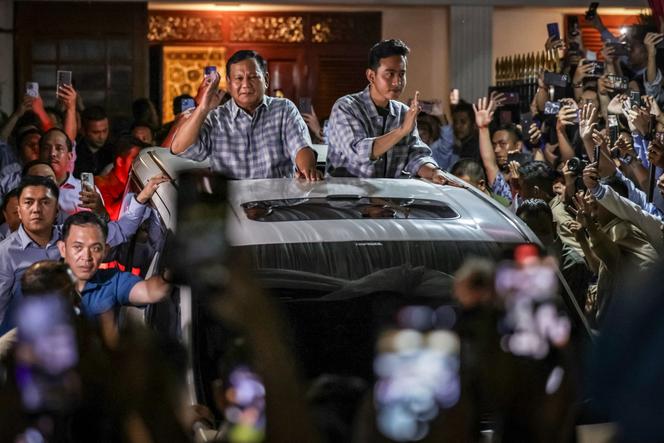


Former general Prabowo Subianto claimed victory in Indonesia's presidential election on Wednesday, February 14, as preliminary results put him well ahead of his two rivals to lead Southeast Asia's biggest economy.
Polls had long shown the fiery defence minister to be the favourite after he pledged to carry on the agenda of popular outgoing leader Joko Widodo, who is accused of inappropriately backing his campaign and whose son is Subianto's running mate.
"All counts, all pollsters[...] showed figures that Prabowo-Gibran won in one round," he told cheering supporters in central Jakarta, referring to his vice presidential pick Gibran Rakabuming Raka, who stood beside him in a matching checked shirt. "This victory should be a victory for all Indonesians."
Official results are not due until next month but at least four government-approved groups – making projections based on official early tallying – showed Subianto as winning around 57% of votes, for a clear majority. The government-approved polling groups' "quick counts" have also been used in previous elections by candidates to claim victory. Pollsters take samples at selected voting stations after polls close, and are allowed to watch the count by election officials.
While claiming victory, Subianto stressed "we must still wait for KPU's official result," referring to the election commission. "We believe Indonesian democracy is running well. The people have decided," he told supporters. Subianto, who was a military chief during the Suharto dictatorship a generation ago, needs more than 50% of the overall vote and at least a fifth of ballots cast in over half the country's 38 provinces to secure the presidency.
This 72-year-old – who pushed street protests and launched legal challenges after losing the previous two elections – thanked his supporters and called for unity. "Now the campaign is over, we must unite again," he said.
Subianto's military service was a deciding factor for some voters. Subianto was dismissed from the military in 1998 over accusations he ordered the abduction of democracy activists at the end of Suharto's rule, but he denied the allegations and was never charged.
He has since rehabilitated his image, thanks in part to a social media campaign targeting Indonesia's youth that portrayed him as a "cuddly grandpa." That strategy appears to have paid off, and the ex-general acknowledged the youth vote helped him win in a country where millennials and Gen-Zers make up more than half the electorate.
Another key factor in his popularity is picking Widodo's eldest son, the 36-year-old Raka, as his running mate, a move that raised eyebrows. Indonesia's then-chief justice, who is Widodo's brother-in-law, in October changed the rules that had barred candidates below age 40 from running for high office. Some observers have also accused Widodo of improperly using government funds to support Subianto, who has rejected accusations of impropriety. And rights groups have expressed alarm he could roll back hard-won democratic freedoms.
Fellow candidate Anies Baswedan, who had been the favourite to battle Subianto in the event of a runoff, said he would respect the result only when it was finalised. "We have to respect the people's decision," he told reporters at his campaign headquarters after his rival claimed victory.
A spokesperson for Ganjar Pranowo, polling third, told reporters his team had discovered "structured, systematic and massive" electoral fraud, without providing evidence.
The United States congratulated Indonesians for their "robust turnout," in a statement that did not mention Subianto, "We look forward to the General Election Commission's announcement of the official election results," State Department spokesman Matthew Miller said.
